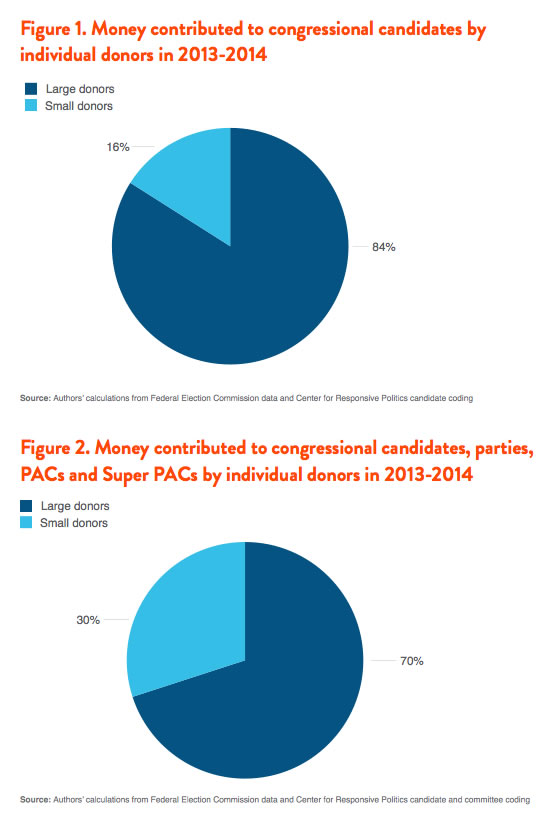Political Donors Spent Enough Money Last Election to Rebuild Detroit Twice

At a time when fewer than 35 of 435 Congressional races are competitive, political spending in midterm elections has never been higher. The projected total for the 2014 elections was $3.67 billion. This includes spending from outside groups, candidates, and political parties -- funded by small and big donors alike -- according to a breakdown of spending by the Center for Responsive Politics.
Source: Maryland PIRG and DemosTen races alone ended up costing more than $40 million as a result of outside donations and partisan spending. The most expensive race in national history was North Carolina's Senate contest between Kay Hagan and Tom Tillis, costing $111,000,000.00 in total -- an average of $16 per voter. Alaska was the most costly state on a per voter basis, coming out to $120.59 spent per voter.
Outside group spending totaled $557.5 million, with the two largest contributors being the conservative American Crossroads/Crossroads GPS and the liberal Senate Majority PAC. The number of political donors has also dropped since 2010 from 817,464 to 666,773 -- only 0.2 percent of the U.S. population. Yet overall spending is still trending upwards.
Compared to the 2010 elections, spending increased by almost $40 million, only a third of which came from small donors (those who gave less than $200), according to a report by the Maryland PIRG and Demos. Interestingly, Democrats relied more heavily on small donors. They raised about $205.3 million from small donors compared to the $150.7 million raised by Republicans.
A total of $30 million was spent by non-affiliated donors -- $17 million less than either of the top two partisan PACs.
Joint Fundraising Committees were more active during this midterm election, raising a total of $168.7 million from just 509 organizations. The deficit between the highest funded Democrat (House Senate Victory Fund) and Republican (Boehner for Speaker Cmte) organizations was close to $30 million in favor of Republicans.
Republicans received the most funding from donations larger than the $123,200 individual donor cap. Seven of the top ten largest donors contributed solely to Republican campaigns.
It seems fewer donors are investing more campaign dollars than ever in fewer races. As a result, their impact will only grow as small donors continue to drop out of the fray. Thus, it is reasonable to suspect that average voters, ones who cannot afford thousands of dollars in campaign contributions, will find fewer representatives willing to hear them in Washington, D.C.
Photo Credit: Ken Schulze / shutterstock.com




